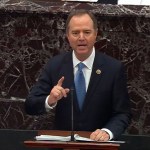Prime
 Trump Launches Yet Another Doomed SCOTUS Bid To Throw Out Votes
Trump Launches Yet Another Doomed SCOTUS Bid To Throw Out Votes 
 Where Things Stand: Isolating With The Oddballs
Where Things Stand: Isolating With The Oddballs 
Quarantine has forced some of us to spend quite a lot of time in isolation with some … unique characters to say the least.
But President Trump — who, unlike the rest of us, has spent little time actually quarantining since COVID-19 first hit the U.S. — is actively choosing to keep the company of out-there characters.
 Criminal Conspiracy
Criminal Conspiracy 
You’ve likely seen the reports (in the Times, Politico and Axios) of this White House meeting yesterday involving Rudy Giuliani, Sidney Powell and various administration officials in which President Trump seemed to back increasingly outlandish and illegal ploys to overturn the result of the 2020 presidential election, the results of which are now certified, final and over. What is buried a bit in most of these stories is that Mike Flynn was at the meeting too.
Given her wild conspiracy theories and the litigation she’s pursued around the country, the focus on Powell is understandable. Trump is reportedly considering making her a “special counsel” to investigate the election, whatever that might mean. But I think we need to see Powell as essentially a creature of Mike Flynn, at least inasmuch as she holds Trump’s attention. It’s Flynn who has had a unique connection to and hold over Trump going all the way back to 2015.
 Impeachment One Year Out
Impeachment One Year Out 
Today is the one year anniversary of Donald Trump’s impeachment. One year is not that long ago. Yet it seems almost like a lifetime. I’ve been watching discussions about whether it was worth it, what impact it had on the 2020 election and whether the Democratic opposition’s strategy looks good or bad in retrospect.
On this point intra-Democratic bickering is still hung up on whether it was a mistake or not to keep impeachment narrowly focused on President Trump’s extortion scheme in Ukraine. It’s not like there weren’t other things President Trump had done that could merit removal from office. Little more than six months earlier the Mueller Report had included voluminous evidence that the President had obstructed justice at the very least.
So why limit an impeachment inquiry to just his latest crime?
 Where Things Stand: Who Will Get Their Christmas Pardon?
Where Things Stand: Who Will Get Their Christmas Pardon? 
Word on the street (or, rather, Axios) is that President Trump is going to issue a wave of pardons today as a grand gesture of Christmas clemency to some of his closest friends and family.
 Where Things Stand: Trump’s Out But McGahn’s Not Off The Hook Yet
Where Things Stand: Trump’s Out But McGahn’s Not Off The Hook Yet 
The House Judiciary Committee still wants to hear from former White House counsel Don McGahn.
 Will You Take the Pledge?
Will You Take the Pledge? 
I’ve been thinking in recent days about taking a pledge. I hope others do too. It’s sprawling enough in its scope that I haven’t known quite how to whittle or distill it down for the sake of pledging it or sharing it with others. But I will take this post as an opportunity to explain it both to myself and to you. Because I think it’s quite important.
Think of it as a rough draft.
Republicans like Marco Rubio are now claiming to be aghast, hurt and more than anything else unwilling to believe in Democratic promises of rebuilding national unity because Joe Biden’s campaign manager and incoming Deputy Chief of Staff called congressional Republicans “fuckers” in an interview. Days ago we heard that Biden’s forceful denunciation of Republican efforts to overturn the result of the election was “burning bridges” to Trump supporters. We’ve seen this pattern before: bad faith taking of umbrage to justify new forms of bad behavior and predation.
It’s not only that. The production of and the stoking of grievances is central to contemporary conservatism and its apotheosis, Trumpism. But it is mostly the weaponization of bad faith.


